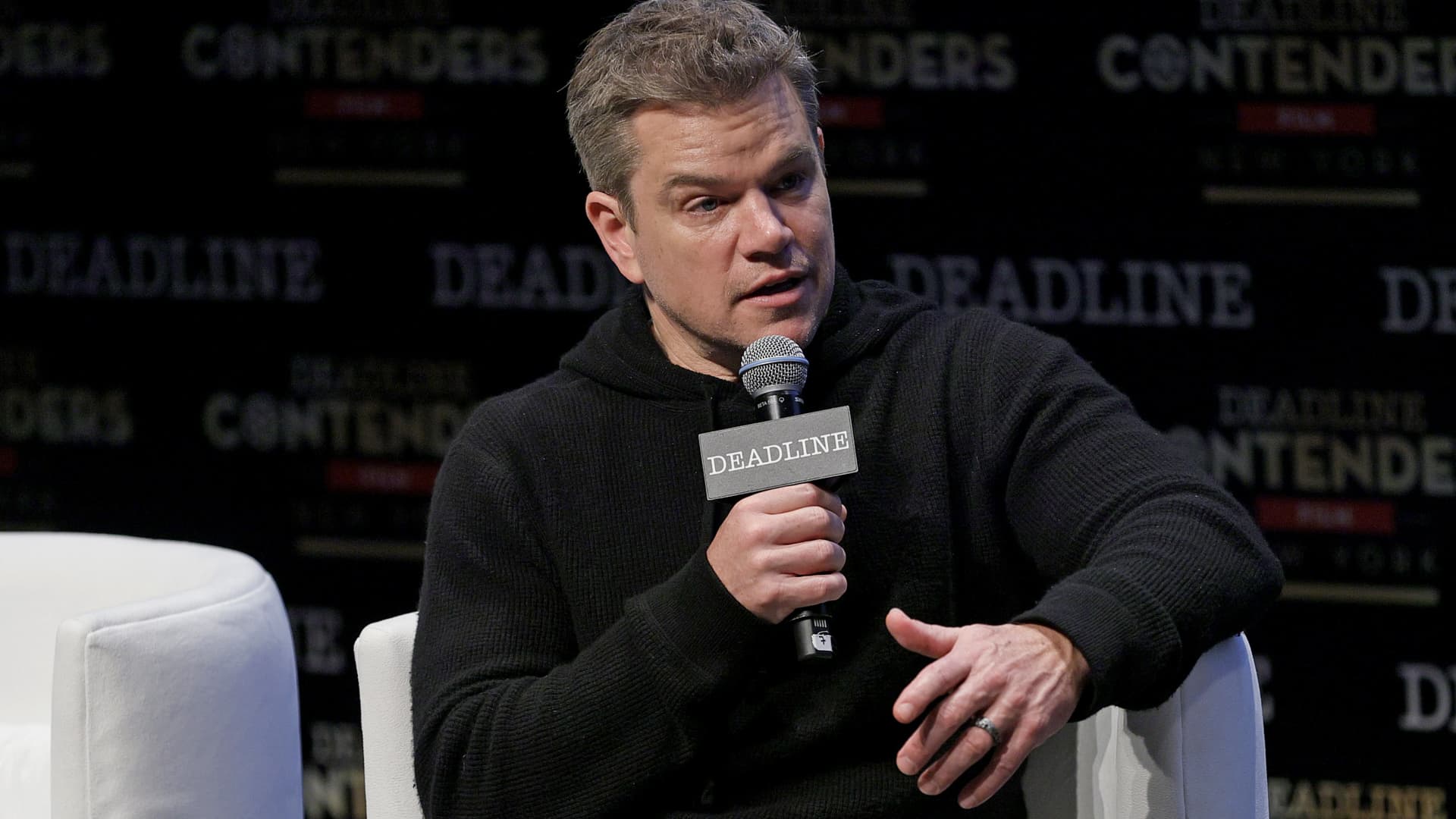
Hollywood superstar Matt Damon told CNBC that a visit to rural Zambia in 2006 first opened his eyes to the impact of a global water crisis that nobody was talking about.
The Oscar-winning actor, producer and screenwriter co-founded nonprofit Water.org in 2009 with former civil and environmental engineer-turned-global water and sanitation expert, Gary White.
Together they have already helped more than 43 million people access safe water and sanitation through WaterCredit, an affordable financing program which empowers those in need to help themselves through small loans.
Damon was speaking in early April following the release of their new book, “The Worth of Water: Our Story of Chasing Solutions to the World’s Greatest Challenge.” The globally acclaimed star of the “Jason Bourne” blockbuster movie franchise told CNBC he first understood the enormity of the crisis on the visit which was arranged by advocacy organization DATA (Debt AIDS Trade Africa), co-founded by U2 frontman Bono.
“I found myself … waking up at 35 years old with this bizarre platform and really wanted to do something positive with it and was really on that trip trying to investigate all these issues of extreme poverty and to try to understand how I could be useful,” he said.
“And this was just an issue that was so enormous and underpinning everything, and yet nobody was talking about it, and that really kind of sparked my interest at first.”
A 14-year-old local girl took Damon on her daily mile-long walk after school to collect clean water pumped from a well. As they walked and talked, she told him through an interpreter that when she was older, she was going to the Zambian capital Lusaka to become a nurse.
“And I just really connected to this kid because she reminded me of how I felt when I was 14 and Ben Affleck and I were going to go to the big city of New York, and we were going to be actors, and, you know that feeling that all 14-year-old’s should have, that the world is kind of their oyster,” Damon said.
He told the latest episode of CNBC’s “Sustainable Future” that the Zambia trip made him realize that the water crisis was not only responsible for the “senseless” deaths of millions of children who don’t have access to clean water, but it was also stopping millions more from realizing their full potential.
“Had it not been for somebody having the foresight to sink a borewell near this girl’s house, she wouldn’t be in school, she would be spending her entire day collecting water for her family,” he said.
“So that really got me, that kind of really landed with me and, you know, the enormity of this issue and how deeply it affects so many people, beyond the sickness and death.”
According to the World Health Organization and the United Nations Children’s Fund (Unicef), one in 10 people in the world lack access to safe water, with one in four lacking access to a toilet.
Internationally recognized water and sanitation expert and CEO of Water.org, White, told CNBC the Covid-19 pandemic had been a challenging time for the organization, with donations going down.
He said it also “drove home” the disparity between those with and without water around the world.
“This crisis .. with Covid, started with us being told to wash our hands with soap and water and to do that frequently and vigorously and to stay at home,” he said.
“And what I knew was the people that we were helping needed us more than ever, because one, they didn’t have access to water to wash their hands, they didn’t have access to soap, they couldn’t choose to stay home, they had to go out and find water. You know, every morning when you wake up, nothing else matters until you find water. It’s that simple.”




